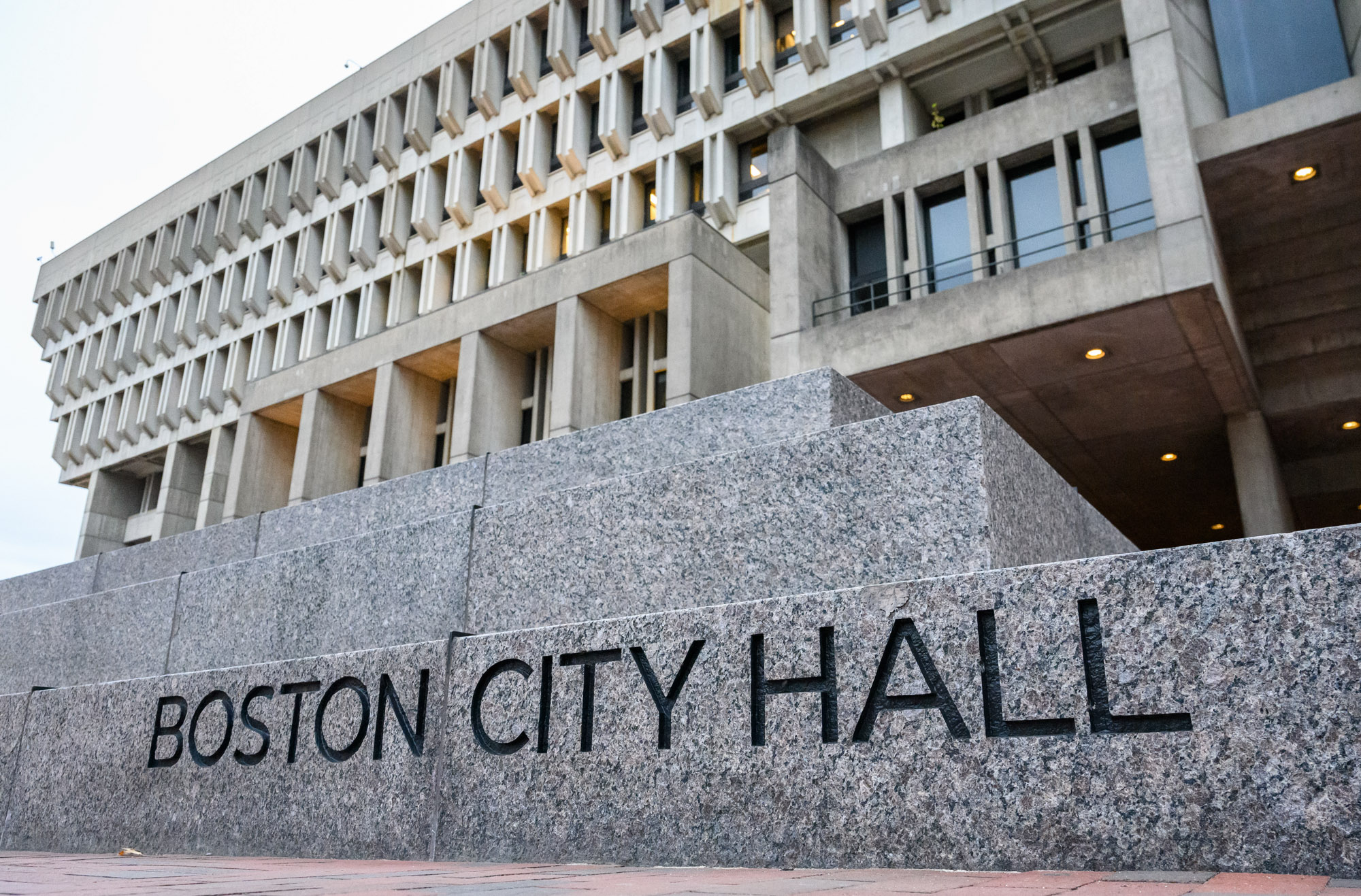Mayor Michelle Wu signed an executive order Oct. 8 to create the Boston Climate Council, an effort to implement a governmental approach to combating climate change.

Boston Climate Council will be responsible for developing the next phase of the city’s Climate Action Plan. Its work will be guided by Boston’s Green New Deal to prioritize emissions reduction, green job creation and community resilience.
The council will consist of 13 city officials representing housing, transportation, emergency preparedness and public health, according to the City of Boston. Chief Climate Officer Brian Swett and Green New Deal Director and Environmental Commissioner Oliver Sellers-Garcia will co-lead the council.
Sellers-Garcia said when he became the Green New Deal Director in the fall of 2022, he worked with different agencies across the city to “find their part of the climate and environmental justice agenda and move it forward.”
“When Brian started as Chief Climate Officer, we knew this was going to be the perfect moment to take almost two years of work and really bring different cabinets together in a more structured way to accelerate and formalize what they’d already been working on,” Sellers-Garcia said.
The Climate Council will work directly with partners throughout Greater Boston to execute Boston’s Climate Action Plan, which focuses on short-term methods to reduce greenhouse gas emissions between 2026 and 2030. Itsa long-term goal is to reach carbon neutrality by 2050.
Sellers-Garcia said the council’s work towards the plan is “outward facing” through engaging local stakeholders and community members.
“We’re looking to co-create a plan with the organizations that are going to help us deliver the solutions,” he said.
The Green New Deal agency oversees Boston’s Building Emissions Reduction and Disclosure Ordinance, a law that seeks to regulate the amount of air pollution and greenhouse gas emissions generated by the city’s largest buildings. According to Sellers-Garcia, the largest buildings in Boston cumulatively “produce 40% of the city’s greenhouse gas emissions.”
Sellers-Garcia said the Climate Council will need assistance from agencies associated with BERDO to help lower that percentage.
The council also seeks to address coastal and street flooding as a result of sea level rise.
53% of Massachusetts residents live in coastal communities. Given the current rate of sea level rise, scientists expect “up to a half million people living along the Massachusetts coast may be at-risk” within the next century, according to the Commonwealth of Massachusetts.
To address flooding concerns, Sellers-Garcia said the council aims to work directly with the Boston Water and Sewer Commission and Boston Planning Department to develop infrastructure that increases resilience to flooding.
Kannan Thiruvengadam, executive director of Eastie Farm, a grassroots effort that develops food spaces in East Boston, said he hopes climate issues will reach the forefront of agency decisions now that a designated council has been created.
“I hope everything that the city does, has climate in its consideration,” Thiruvengadam said. “How the departments operate I hope will be impacted significantly with climate as a priority.”
To inform community members, climate advocacy groups and local organizations on the council’s progress, Sellers-Garcia said the city’s Green New Deal Data Dashboard will be updated periodically.
“We really hope to make that a central repository for climate accountability data,” Sellers-Garcia said. “Communities at all levels, whether it’s an individual or some of our bigger advocacy organizations that push us, will be able to see exactly how we’re doing.”
Hessann Farooqi, executive director of the Boston Climate Action Network, said the City has to do everything it can to reduce greenhouse gas emissions and protect “against the effects of climate change that are already here, from extreme heat to rainfall to sea level rise and the flooding that comes with it.”
Farooqi said it’s also important to implement climate policies that will positively impact all Boston residents.
“We also have to use all of those [initiatives] as opportunities to level the playing field and make sure that people who have been disproportionately harmed are the first to be benefited by all of the great things that climate action can bring,” Farooqi said. “That’s what the Climate Council should be focused on first and foremost in all of its actions.”
















































































































